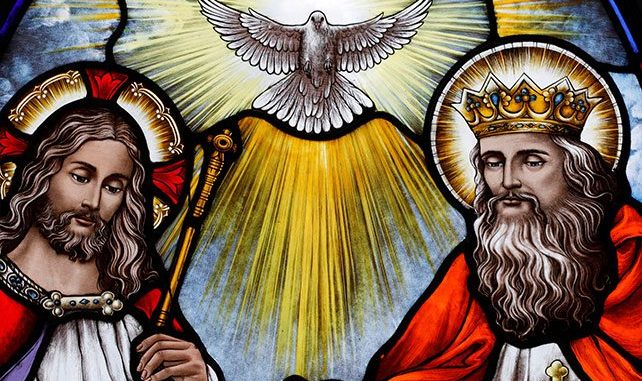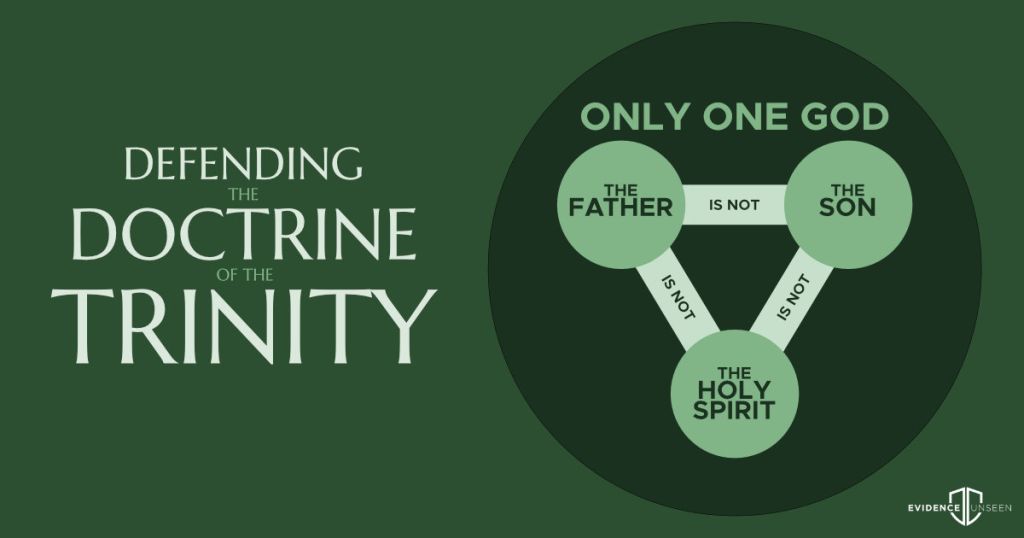
To put it succinctly, the Christian doctrine of the Trinity is a central one in our faith. It describes God’s very identity as the Triune Creator eternally existing in three persons, (Father, Son, and Holy Spirit) who are equal in substance and power. Yet, though this is a central doctrine in our faith, through my fellowship and interactions lately, I discovered that many Christians are confused about it, and indeed lately there have been much challenges from alternative faiths like the Oneness religion.
This is in fact not a recent development. Throughout history, there has been much debate about the Trinity. It’s also one of the most common challenges non-believers throw in the face of believers, and if we are to stand firm in our faith, and to defend it (our faith and/or beliefs), it is important for every Christian to tackle the subject head-on. We must come to a proper understanding of what the Trinity is, and though it is indeed true that God is beyond what human language can fully express, the Bible gives us many insights about God’s Trinune character and nature.

It is easy to see why the Trinity is not a doctrine that is easily grasped. While we can know God and have a relationship with Him, certain truths about Him puzzle even the brightest theologians. The idea of the Trinity states that there is one God who exists in three persons. This doctrine is difficult to express since no analogy perfectly describes this concept. It is not that there are three gods (as is often misperceived by non-Christians), that God exist in three forms (like what is defined by the Oneness religion), or that God is in three parts (as is often misunderstood by new Christians); there is only one God, who exists in three persons, all of whom are fully God. While the word “Trinity” does not appear in the Bible, the concept emerges from passages that show that the one God is Father, Son, and Holy Spirit, who are all God and distinct persons.

The Bible clearly teaches that only one God exists. Perhaps the plainest example can be found in Deuteronomy 6: 4-5, a prayer recited regularly by Jews that say God is one. The whole point of Isaiah 44:6-45:25 is that the God of Israel is the only God. Jesus Himself affirmed in Mark 12:29 the truth of there being only one God. Later on, the apostle Paul also regularly declared only one God (1 Corinthians 8:4; Ephesians 4:5). So one thing is established here; Christian doctrine, including the Trinity, does not teach us that there are three gods.

In addition to passages affirming that only one God exists are passages that show the Father, Son, and Holy Spirit as all being God. Some of these passages put the Father, Son, and Holy Spirit in correlation to each other, implying a unity and equality among them (2 Corinthians 13:14). Other passages show that Father, Son, and Holy Spirit each have different tasks in the work of salvation (Ephesians 1:3-14; 1 Peter 1:2).
The Father, Son, and Holy Spirit are often addressed in Scripture as God. Jesus’s actions clearly indicated to those who watched that He did those actions with the authority of God (Mark 2:7; John 5:8), and He accepted the declaration of the disciples that He is indeed God (John 20:28). The New Testament unequivocally declares the divinity of Jesus (John 1:1; Romans 9:5).
The Holy Spirit is also called God (Acts 5:3-4) and is shown to possess attributes such as omnipresence (Psalm 139:7-8) and omniscience (1 Corinthians 2:10-11). Furthermore, the Holy Spirit is a person, not simply a force (John 14:16-17, 26). The Holy Spirit is a He, not an It. Therefore, a second thing is established here. The Father, Son, and Holy Spirit are each God.

The idea that God exists in three persons can be tricky, as we often think that being a person means having a body. But God is spirit and not limited by physical corporeality. The idea of personality, furthermore, refers more to the fact that the Father, Son, and Holy Spirit are all distinct from each other; they are not different forms or manifestations of the same person but all exist at the same time. At the baptism of Jesus, all three members of the Trinity acted and existed simultaneously (Mark 1:9-11). They are distinct and of the same power, united in purpose with each performing different acts in the plan of salvation. Perhaps the simplest way to put it is that the Trinity in Christian doctrine describes the unity of Father, Son, and Holy Spirit as three persons in one Godhead. That is, though they are distinct from each other, they are united as one, in a way that transcends every capability of any human language to describe it.

While words cannot exhaust the concept, the idea of the Trinity has a practicability. One realizes the unity and distinction in the Godhead and should value this in humans, whom the Triune God made in His image. Differences in genders and race display this diversity, as well as the different gifts of church members. Furthermore, God did not create human beings because He was lonely, He existed in a perfect relationship before the world began!
God did not need us, but we need Him. While even as Christians we might not completely understand how the Trinity works, we should relate to all three members, not overemphasizing one and ignoring the other. God revealed the Trinity not so that we can fully understand His nature but so that we can fully enter into fellowship with Him in all three persons. And at the end of the day, that is what matters most in our daily lives.
Note: This article was guided throughout by a book on Biblical concepts that was published by Barbour Publishing.
|Share The Good News|




Leave a Reply